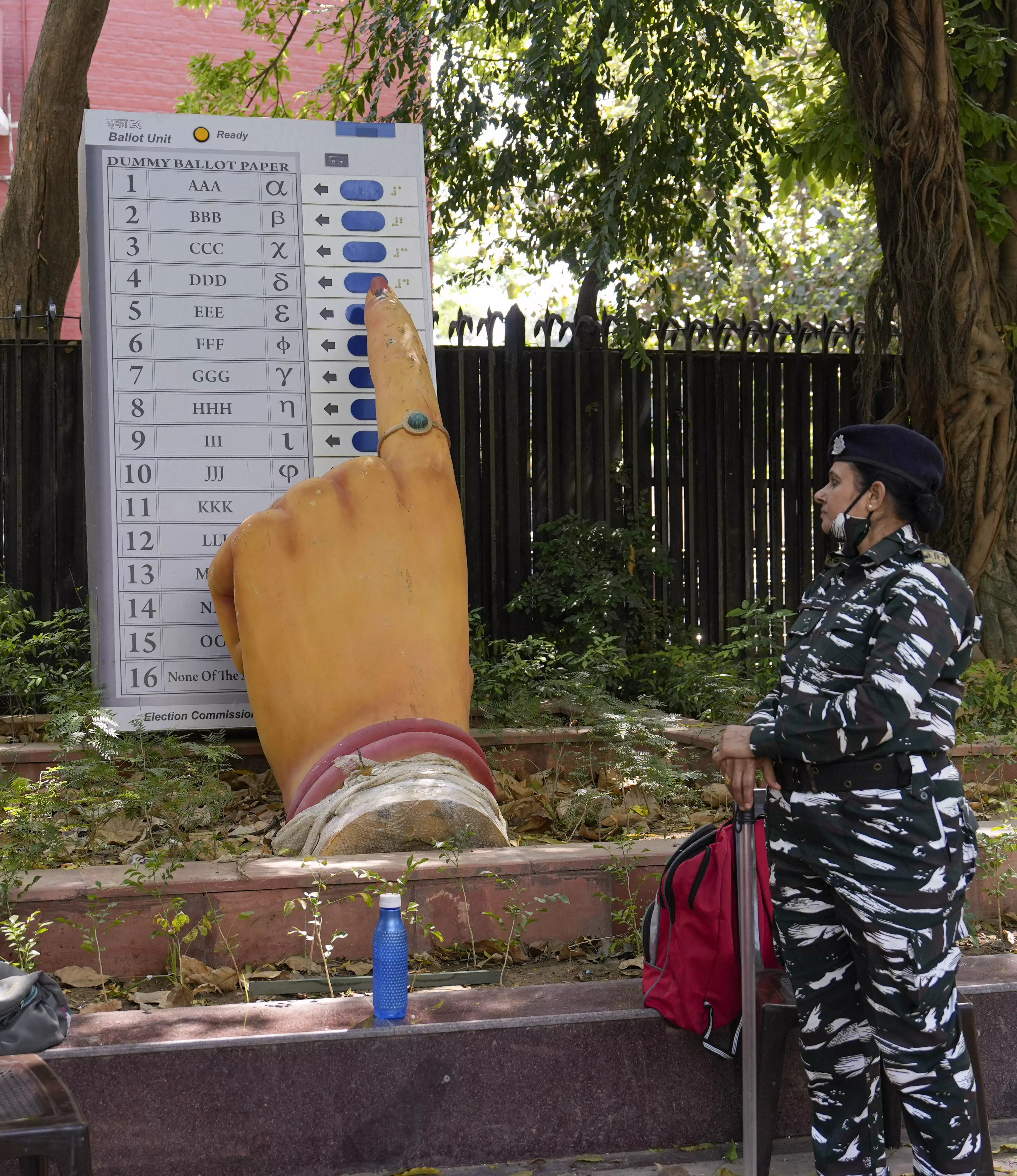DC Edit | We have a right not to vote

For a nation in a deeply divided polity at the peak of its most significant elections, there is a surprising consensus about one aspect of our democracy — that elections are the most profound proof of democracy, a “festival” as it were, and it is our “sacred duty” to vote.
The Election Commission of India and a plethora of governmental bodies, political parties, NGOs, influential individuals, celebrities and citizens’ groups come together to try to create a positive narrative about why voting is a significant duty and why we ought to all participate in it.
Nothing much to disagree there, prima facie, except that consensus must be viewed suspiciously in any democracy, and some contrarian spirit must check the premise of such a narrative. For one, while greater participation is a generally healthy goal for anything deciding the future of a people and a nation, we should not judge our democracy like a needlessly stern parent might view a primary school student’s report card — and set a 100 per cent numerical compliance as an unshakeable aim.
That narrative would be disturbing because of two primary reasons — elections are not the most important feature of a democracy — it is the rule of law, a strong justice system and thriving rights, including unpopular ones, like the right of political rivals and citizens to dissent, criticise the government or question the powerful, or the right to offend a large number of people, among others, that are more crucial to the health of a democracy.
Second, the do-gooders in support of higher voting use this season to advocate, muster support and normalise extremely undemocratic viewpoints — like voting not as a right but as a duty — that one must vote to be able to question the government. It is disturbing to normalise a view not in the Constitution that the right to question a government is a licence subject to our voting in an election. The voting ink does not last five years. Nor are we given a VVPAT as proof for our voting to show every time we question the powerful.
Worst is the autocratic suggestion that voting must be made a compulsory duty, with penalties and punishments for those who do not vote.
Yes, we must vote. In large numbers. But are those not casting their vote also not giving feedback to our democracy? Like a kind of Nota? Our democracy must find ways to increase voting share beyond shaming those who do not vote. We must as a system take up the responsibility to make voting voluntarily more alluring beyond lame campaigning.
Those who blame non-voters for standing in long queues for a ticket for an IPL match or a movie, especially the urban, middle classes, should ask the system, why they can’t make democracy and elections at least as interesting as an IPL match or a movie?
There are a myriad ways to increase voting percentage — weather, voting conditions, facilities — and we must use all such ideas and more, including early voting and distance voting for those working away from a place where their voter ID is registered, among others.
But as a larger point — politicians have a duty to earn the privilege of not just our vote, but also our respect and trust, and to be able to inspire our confidence to come out and vote through their conduct, not just during the elections but all around the year, through five years. Yes, citizens have a profound democratic right to not vote for any and all candidates.

